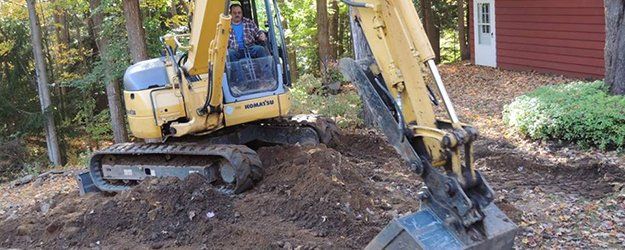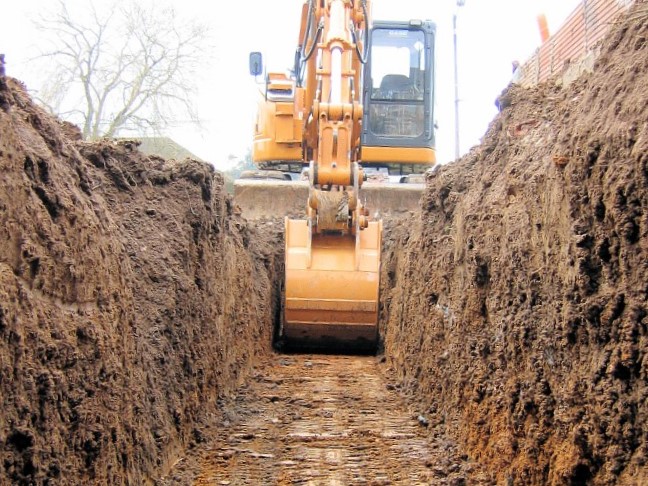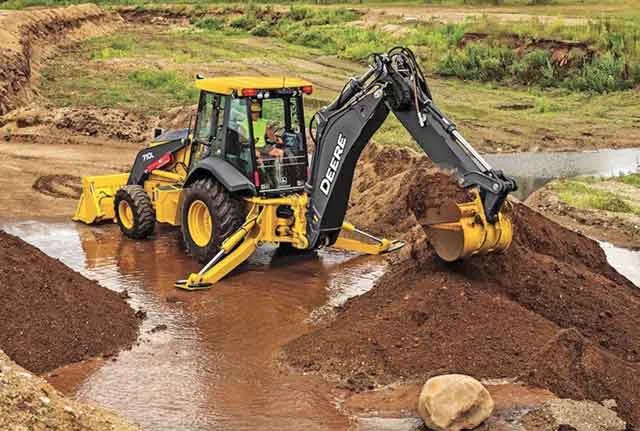Comprehensive Excavation Methods: Mastering the Basics for Success
The careful preparation, precise execution, and precise attention to detail required in excavation projects demand a comprehensive approach that includes various essential facets. The real mastery lies not simply in comprehending these fundamentals yet in perfectly incorporating them to browse the complexities of excavation jobs with finesse.
Recognizing Excavation Project Preparation

The initial phase of any kind of excavation task is the preparation stage, where important decisions are made that can substantially impact the end result of the task. Comprehending the task extent, timeline, and budget constraints is crucial for producing a thorough excavation plan that makes certain the task's success.
One secret aspect of excavation project preparation is the growth of an in-depth timeline that describes the series of due dates, tasks, and milestones. This timeline functions as a roadmap for the project group, allowing them to track development and make essential modifications to ensure the project stays on timetable. In addition, a well-defined spending plan that represents all costs, including devices rental, labor expenses, and products, is crucial for preventing expense overruns and hold-ups. By meticulously taking into consideration all these variables throughout the planning phase, excavation projects can be performed effectively and efficiently, resulting in effective end results.
Dirt Evaluation and Website Evaluation
Performing complete soil evaluation and site evaluation is a crucial action in the prep work phase of any type of excavation task. Dirt analysis entails determining the make-up, framework, and properties of the dirt at the excavation site. This details is critical for understanding the dirt's bearing ability, dampness content, and capacity for disintegration, which are crucial variables in figuring out the excavation techniques and equipment required for the task.
Site evaluation goes beyond soil evaluation and includes a broader evaluation of the general website conditions. This assessment consists of identifying any kind of potential dangers, such as underground energies, ecological concerns, or unsteady surface, that can impact the excavation process. By extensively reviewing the site, job supervisors can develop efficient excavation approaches that prioritize safety and security, efficiency, and environmental management.
Using innovative technologies like ground-penetrating radar, dirt sampling, and drone studies can improve the precision and performance of dirt evaluation and site analysis. Investing time and sources in these preliminary steps can eventually conserve time and stop costly delays or issues throughout the excavation procedure.
Tools Selection and Utilization
Effective excavation jobs count heavily on strategic tools option and usage to make certain ideal performance and performance. Selecting the best devices for the task is crucial in making best use of performance and lessening downtime. Factors such as the sort of dirt, deepness of excavation, and job extent play a significant duty in determining the most ideal devices for the task handy.

Along with choosing the appropriate equipment, appropriate use is vital to job success. Operators needs to be trained to take care of the devices securely and successfully - lancaster excavation. Normal maintenance checks and prompt repair services assist protect against breakdowns and make sure consistent efficiency throughout click to read more the job
Security Actions and Regulations Conformity
In the world of excavation tasks, prioritizing precaution and conformity with regulations is extremely important to guaranteeing a safe and secure and legally audio operational environment. Safety and security steps encompass a recommended you read variety of practices, consisting of carrying out extensive website evaluations, executing proper signage and obstacles, and offering ample safety and security training for all workers included in the excavation procedure. Adherence to regulations, such as OSHA needs in the USA, guarantees that the excavation project meets the essential requirements to secure workers, onlookers, and the surrounding setting.

Surveillance Progression and Adjusting Strategies
How can project Discover More supervisors properly track the innovation of excavation tasks and adjust their methods appropriately to enhance results? Monitoring progress is essential for ensuring that excavation tasks stay on track and meet deadlines. Project supervisors can make use of various tools and strategies to track progress, such as daily report card, routine site examinations, and progressed tracking modern technologies like drones and general practitioners tracking systems. By continually monitoring the project's innovation, supervisors can identify any possible delays or concerns at an early stage and take aggressive steps to resolve them.

Verdict
In final thought, understanding the basics of comprehensive excavation approaches is crucial for the success of any kind of project. By understanding job planning, assessing soil and site conditions, choosing suitable tools, abiding by safety laws, and checking development, project supervisors can guarantee a efficient and smooth excavation procedure. Applying these methods will lead to successful outcomes and reduce prospective threats or troubles during the excavation job.
The preliminary stage of any type of excavation project is the preparation stage, where critical choices are made that can substantially impact the outcome of the task. Comprehending the project extent, spending plan, and timeline constraints is essential for creating an extensive excavation strategy that guarantees the task's success.
How can forecast managers successfully track the advancement of excavation jobs and adjust their approaches accordingly to optimize outcomes? By carefully checking progression and being willing to adapt methods, task supervisors can boost the overall success of excavation jobs.
By recognizing project planning, assessing dirt and website conditions, picking suitable tools, complying with security laws, and monitoring development, project supervisors can ensure a reliable and smooth excavation process.